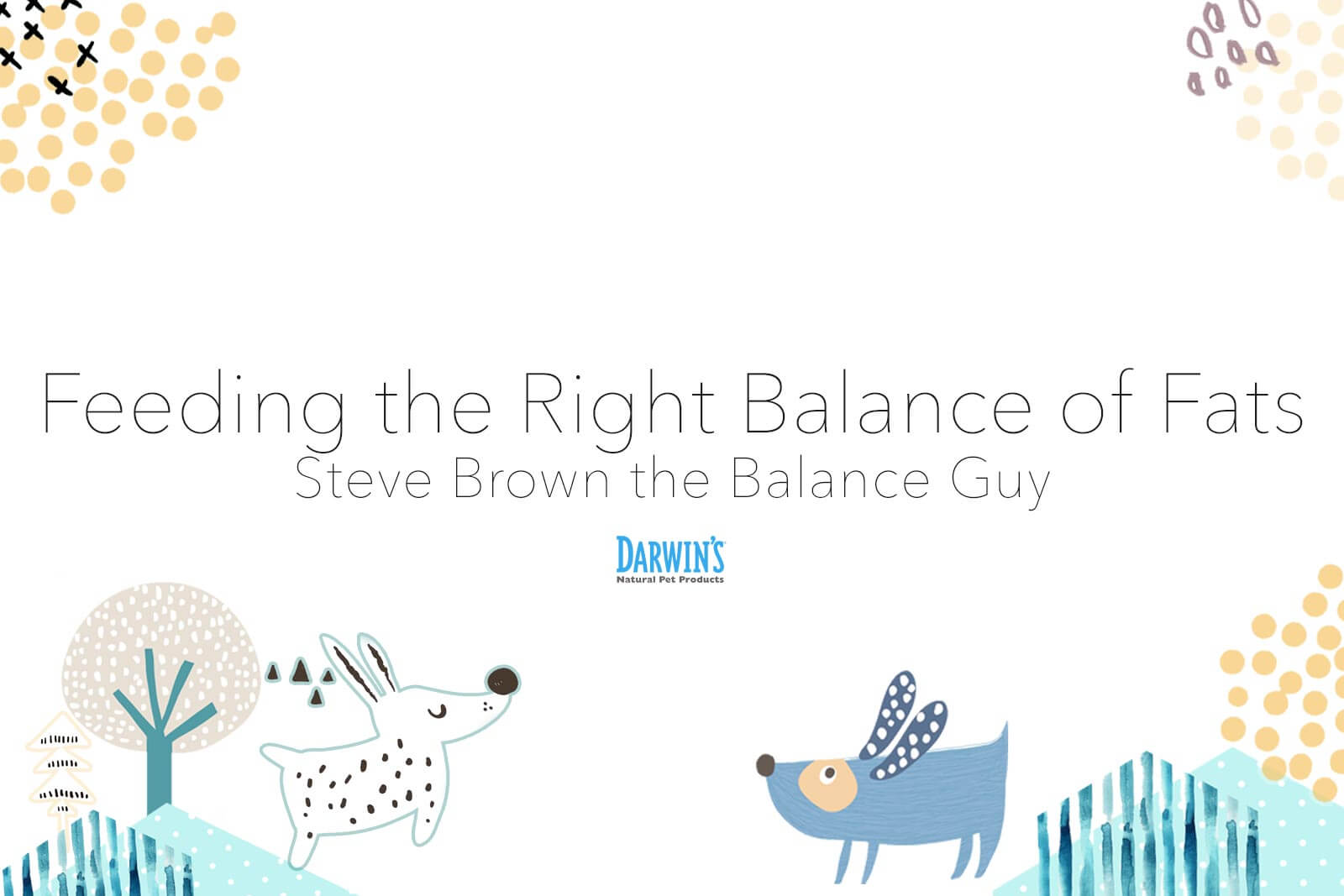Feeding the Right Balance of Fats: Part 3
3/10/15

In my two earlier posts on fats, I introduced the concept that improving the balance and types of fat that your dog eats is the best thing you can do to improve the chances that your dog lives a long, healthy, happy life.
Here are four easy steps you can take to feed your dog the right balance of fats:
1. Feed lean meats. For those making their own foods, choose lean meats. If feeding chicken necks, for example, remove most of the separable fat and skin. When feeding beef, choose 90% lean. For those choosing commercial raw diets, only serve those products that have less than 45 kcal/oz (see my first blog for details), otherwise the product has too much fat and the fats can’t be balanced.
2. For commercial and homemade food feeders, including Darwin’s, rotate poultry (chicken, turkey, and duck) with ruminant (beef and bison). Poultry is high in polyunsaturated fats, and the ruminants are often high in saturated fats. Rotating, on a daily or weekly basis, provides an excellent balance of fats.
3. Add some fresh sardines weekly. Sardines provide two important fats, EPA and DHA, but both are very fragile (go rancid quickly). Some people use fish oils, but I think sardines are superior because they provide DHA in absorbable, well-protected forms. DHA is a very fragile fat, and should not be exposed to air at room temperature. I recommend feeding sardines in water (not soy oil) with no salt added. For small dogs, feed one can every other week; medium-sized dogs 1 can per week; and large dogs 2 cans per week.
4. Avoid feeding rancid fats, which can even be found in dry foods. Rancid fats can be contributing factors to many diseases. Some important fats, such as those from fish, turn rancid very quickly when exposed to air. The best way to avoid rancid fats is to buy fresh foods: raw products that are less than three months old, and, if you feed dry foods, choose freshly-made foods without added fish oil or DHA, the most fragile of all the fats.
Feeding your dog a proper balance of fats (including avoiding rancid fats) will help your dog live a happier, smarter, healthier and longer life.
(This is a short summary of several chapters on how to best balance fats from my book, Unlocking the Canine Ancestral Diet, Healthier Dog Food the ABC Way, Dogwise Publishing, 2009)



